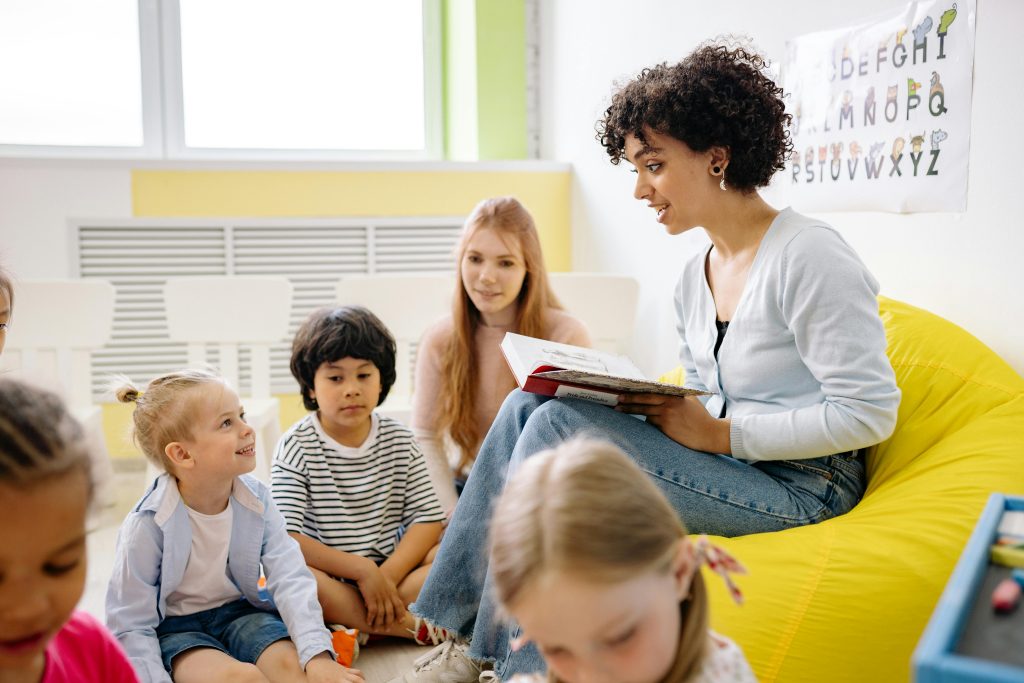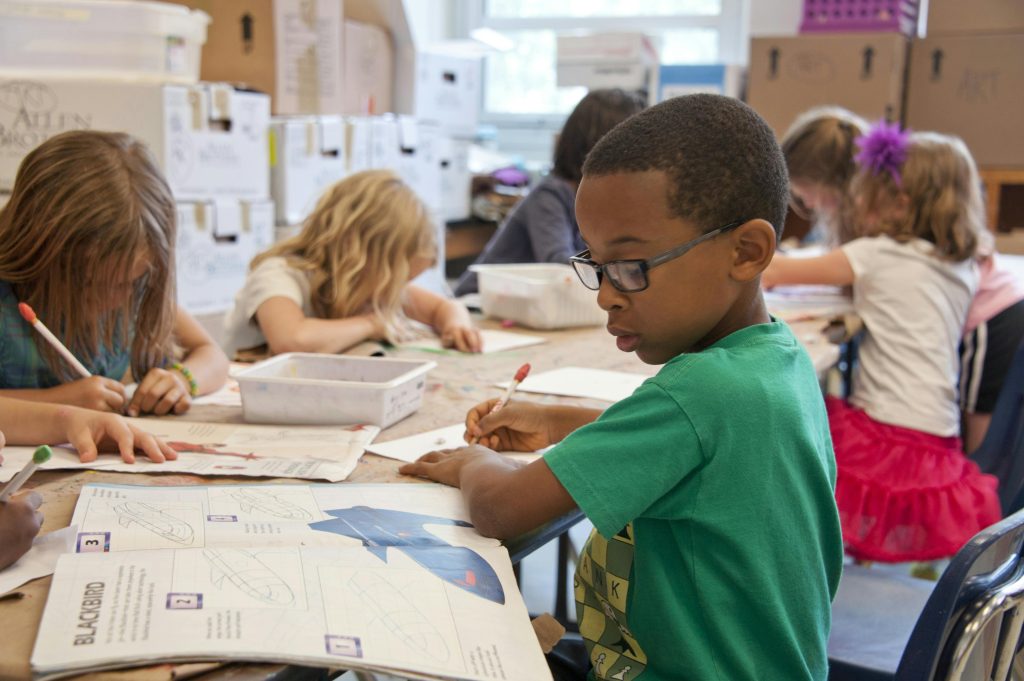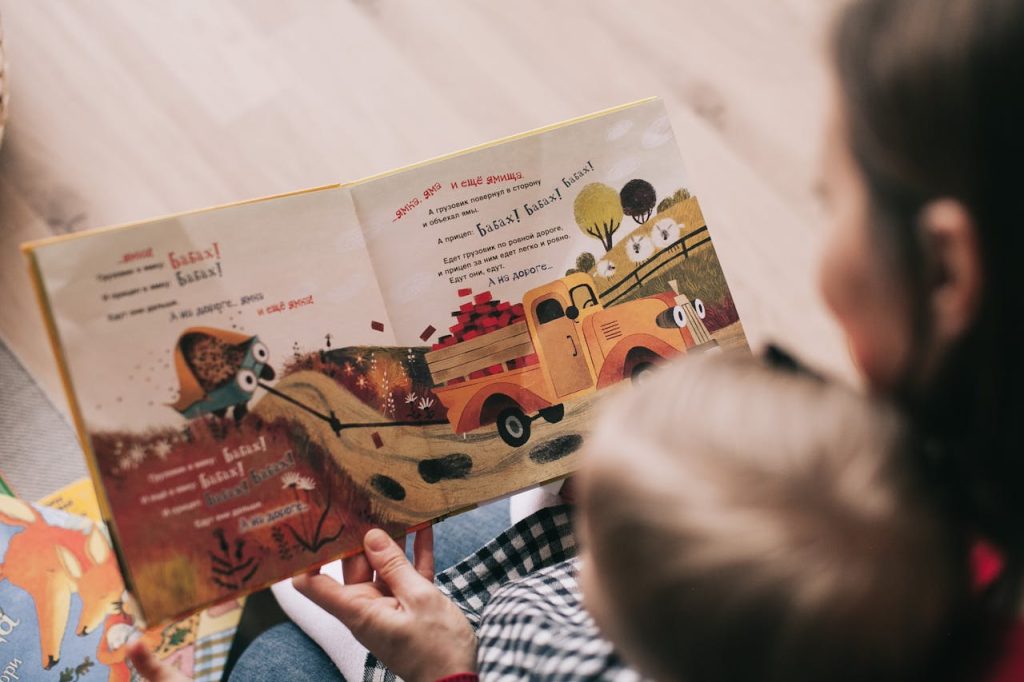
In 2025, it is essential that all writers of children’s literature need to ensure they are always up-to-date with storytelling skills. The timeless art of storytelling still holds a magical power, especially for our little heroes.
Hence, through captivating tales, we can ignite their imaginations and bolster their learning experiences like never before. As part of the “Tales of Little Heroes” brand, I’m excited to share how honing storytelling skills can meaningfully impact the growth and creativity of our young ones.
Join me on this journey as we explore the wonders that well-crafted stories can bring to the lives of our little heroes. You can learn more about storytelling skills by visiting the official Medium publication here.
The Effective Storytelling Skills
Welcome to the enchanting world of Tales of Little Heroes, a special place where storytelling ignites the spark of imagination and fosters a love for learning among our little heroes.
Storytelling is a timeless and influential art form that plays a crucial role in shaping the minds of the young. Throughout history, from the ancient legends recounted around flickering campfires to the comforting bedtime stories shared between parents and children, narratives have captured the imagination and emotions of listeners. These stories entertain and impart valuable life lessons, cultural values, and moral guidance.
As children engage with various tales, they develop critical thinking skills, empathy, and a deeper understanding of the world around them. Effective storytelling skills are rooted in their ability to inspire creativity and forge connections across generations, making it an essential practice in nurturing young minds.
Stories play a vital role in children’s development. They do much more than entertain young minds; they are powerful educational tools that impart knowledge and understanding about the world. Stories stimulate children’s imagination and creativity through engaging narratives, encouraging them to think critically and explore new ideas.
Furthermore, they reinforce essential values such as kindness, empathy, and resilience, helping children navigate their social environments and develop a strong moral compass as they grow. Storytelling is an enriching experience that contributes significantly to children’s emotional and intellectual growth.
Enhancing Vocabulary and Language Skills
One of storytelling’s most important benefits is its power to enhance vocabulary and language skills among children. According to Sara at The Colorful Apple YouTube channel, knowing how to incorporate storytelling activities effectively in a fun and engaging way is one of the key storytelling skills that builds creativity and imagination.
When children engage with stories through listening or reading, they are introduced to a rich array of new words and phrases that might not be present in their everyday conversations. This exposure is crucial for expanding their vocabulary and improving their language comprehension.
Moreover, storytelling often features vivid dialogue, engaging descriptions, and structured narratives, which serve as excellent models for language use. Children can observe how characters express emotions, how settings are described, and how plots unfold.
By mimicking these elements, children can incorporate new vocabulary and sentence structures into their own speech and writing. This process boosts their linguistic abilities and enhances their overall communication skills, fostering a greater appreciation for language and storytelling.
The Role of Repetition
Repetition plays a vital role in storytelling, particularly in the context of language learning for children. This is one of the storytelling skills that every parent and teacher needs to embrace. When young listeners are exposed to specific phrases or vocabulary multiple times, they are more likely to retain this information.
This repetitive exposure not only aids in memorisation but also helps children develop a robust foundation for their reading and writing abilities.
Consider how frequently children repeatedly ask to hear the same story; this behaviour is not merely a preference for familiarity but a crucial part of their language acquisition process. Each repetition allows them to grasp new concepts, vocabulary, and sentence structures.
As they engage with the narrative, they begin to internalize the rhythm and patterns of language, ultimately enhancing their comprehension and expressive skills. Such storytelling experiences nurture a lifelong love for reading and learning.
Boosting Cognitive Skills
Storytelling is not merely a vocabulary exercise but a powerful tool that significantly enhances children’s cognitive skills. When children listen to a story, they actively engage in various mental processes, including focusing their attention, comprehending the narrative, and remembering specific details.
This interaction requires them to visualise characters, anticipate plot developments, and connect personal experiences with the unfolding events. As they immerse themselves in the story, these activities stimulate critical brain development areas and significantly improve their memory retention abilities.
By practising these storytelling skills, children build essential foundations for effective communication, analytical thinking, and creativity, which are crucial for their overall academic and personal growth.
Critical Thinking and Problem Solving

Many stories are centred around a specific problem or conflict that needs to be addressed or resolved. As children immerse themselves in these narratives, they are prompted to engage in critical thinking and problem-solving processes.
This engagement encourages them to predict the outcomes of various scenarios, enhances their understanding of the relationship between cause and effect, and fosters their ability to devise creative solutions.
By engaging in storytelling activities, children immerse themselves in captivating plots and cultivate vital cognitive skills. These storytelling skills, such as critical thinking, problem-solving, and empathy, can be effectively applied in real-life situations, enhancing their understanding of the world.
Table: Cognitive Skills Enhanced by Storytelling Skills
| Cognitive Skill | How It’s Enhanced |
|---|---|
| Attention Span | Requires focus and listening |
| Memory Retention | Encourages remembering plot and details |
| Critical Thinking | Understanding plot twists and character actions |
| Problem-Solving | Engages in finding solutions to conflicts |
Fostering Imagination and Creativity
Imagination is one of the most remarkable gifts of childhood and one of the most essential storytelling skills. It allows children to explore worlds beyond their immediate surroundings, fostering creativity and innovative thinking. Storytelling plays a vital role in nurturing this extraordinary resource. When children listen to stories, they don’t just hear words; they actively create mental images, picturing vibrant characters and intricate settings in their minds.
This imaginative process invites them to engage with the narrative, enhancing their understanding and emotional connection to the story. Visualising different scenarios and experiences, they develop critical skills that contribute to their overall cognitive growth.
Through storytelling, imagination helps children expand their capacity to dream, envision possibilities, and think creatively. These storytelling skills enrich their early years and lay the foundational lifelong learning and exploration framework.
Encouraging Creative Expression
Effective storytelling skills can help foster children’s creative expression. When children retell a story using their own words, they not only practice language skills but also learn to interpret and convey meaning in a way that reflects their personal understanding.
Additionally, when they draw scenes from the stories or act out specific characters, they tap into their imagination, bringing their interpretations to life through art and performance. These engaging activities allow children to explore their thoughts and feelings, giving them a unique outlet to express their emotions and ideas.
Encouraging creative expression is one of the storytelling skills vital to nurturing self-confidence and enhancing the ability to articulate thoughts clearly. As individuals engage in storytelling, they explore their imagination and refine their communication skills, allowing them to connect with others on a deeper level.
Emotional and Social Development
Stories are crucial in teaching essential values such as empathy, kindness, and courage. Through engaging narratives, children encounter these themes and learn to explore their own emotions and those of others.
Identifying with the characters in these stories helps them immerse themselves in different experiences and situations, allowing them to reflect on their feelings and social interactions.
As they witness the consequences of characters’ positive and negative actions, children develop a deeper understanding of the impact their choices can have on themselves and those around them.
Furthermore, stories provide a rich platform for exploring various perspectives, enabling children to recognize and appreciate the diverse viewpoints and backgrounds of others. Harnessing these storytelling skills helps foster critical social skills and emotional intelligence vital for their growth and interactions.
Building Empathy

Children exposed to stories featuring characters from different backgrounds and experiences cultivate a more profound sense of empathy. These narratives allow children to step into the shoes of individuals whose lives may differ vastly from their own, enabling them to understand and appreciate unique perspectives.
This process is essential for their social development, enhancing their ability to relate to others and navigate complex emotional situations.
Fostering empathy through diverse storytelling plays a significant role in nurturing children’s emotional intelligence, helping them build meaningful relationships and engage compassionately with the world around them.
Strengthening Bonds
Listening to and sharing stories play a crucial role in strengthening the bond between the storyteller and the listener when a story is conveyed—whether by a parent recounting a childhood memory, a teacher sharing an inspiring tale, or a friend narrating a recent experience—it fosters a deep sense of intimacy and connection.
These narratives create a shared experience that allows individuals to engage emotionally, reflect on their lives, and personally relate to one another. Through storytelling, we exchange ideas and experiences and build trust and understanding, enriching our relationships and enhancing our sense of community.
Cultural Awareness and Diversity
Storytelling is a powerful tool for introducing children to various cultures, traditions, and languages. Through applying storytelling skills that enhance the engagement of narratives, children explore different ways of life, values, and customs that exist beyond their own familiar environment.
This exposure sparks their curiosity and fosters a deeper understanding of the world around them. As they immerse themselves in these stories, they cultivate cultural awareness, learning to appreciate the richness of diversity in human experiences.
This appreciation can lead to greater empathy and respect for others, helping children to build a more inclusive worldview. Ultimately, storytelling nurtures open-mindedness, allowing young learners to embrace differences and celebrate the uniqueness of cultures worldwide.
Global Perspectives
Incorporating stories from various cultures allows children to gain a deeper and broader understanding of the world around them. Through these narratives, they learn that while people may celebrate different customs, practices, and traditions, the emotions and experiences that connect us—such as joy, sadness, love, and fear—are fundamentally universal.
This exposure fosters empathy and appreciation for diversity and encourages children to recognize common human experiences, promoting a sense of global interconnectedness. Engaging with diverse stories, children develop a richer perspective on life, ultimately contributing to their social and emotional growth.
Tips To Better Your Storytelling Skills
Now that we have thoroughly examined the numerous examples of storytelling skills and their benefits, it’s time to delve into some practical strategies that can help you improve your storytelling skills. These tips will enhance the clarity and engagement of your narratives and make them more relatable and memorable for your audience.
From understanding your audience to mastering narrative structure, each strategy plays a vital role in crafting compelling stories that resonate with listeners. Let’s explore these techniques in detail to elevate your storytelling capabilities.
Know Your Audience
Understanding your audience’s age and interests is essential in determining the nature of storytelling skills to apply, as this knowledge significantly influences the effectiveness of your storytelling. Tailoring your narratives to align with their comprehension levels and preferences can create a more engaging and relatable experience.
Consider your audience’s specific characteristics, such as their cultural background, life experiences, and preferred themes, to make your stories resonate with them. This thoughtful approach enhances their enjoyment and fosters a deeper connection with your message.
Use Expressive Voice and Body Language
Your voice and body language are vital storytelling skills that help animate the story and make it resonate with your audience. To enhance this experience, try using distinct tones and inflexions for different characters; for example, you might adopt a high-pitched voice for a playful character and a deep, authoritative tone for a villain.
Additionally, incorporating gestures and facial expressions can significantly enrich the narrative. For instance, using hand movements to illustrate actions or expressing emotions through facial expressions can help your listeners visualize the scenes more vividly and engage more in storytelling.
These techniques make the story more captivating and invite your audience to connect with the characters deeply.
Incorporate Visual Aids
Visual aids, including pictures, puppets, and props, enhance the storytelling process, making it interactive and captivating. These visual elements support the narrative and help children to visualise the story better, allowing their imaginations to flourish.
By incorporating these aids, storytellers can more effectively maintain children’s attention, encouraging active participation and deeper engagement with the plot and characters. The use of visual aids transforms storytelling into a dynamic experience, fostering a love for reading and learning in young audiences.
Encourage Participation
One critical storytelling skill is engaging your audience by inviting them to participate actively. Begin by asking open-ended questions, encouraging them to think critically and share their thoughts. You might also prompt them to predict what will happen next in the story, fostering a sense of anticipation and involvement.
Consider allowing audience members to act out certain parts of the story. This brings the narrative to life, creating a more dynamic and immersive experience. Encouraging participation transforms the storytelling into a collaborative journey, making it far more interactive and memorable for everyone involved.
Storytelling and Technology

In today’s digital age, technology has transformed how we engage in storytelling, introducing a variety of interactive and immersive experiences. Audiobooks allow children to listen to captivating narratives narrated by skilled voice actors, enhancing their imagination and comprehension through audio.
Additionally, specialised apps designed for storytelling often include visual elements, animations, and interactive features that encourage children to participate actively in the story.
Online storytelling platforms further expand these possibilities, providing access to many stories from different cultures and genres. These advancements not only make storytelling more accessible but also foster a deeper appreciation for literature among young audiences.
Digital Storytelling Tools
Many tools and applications are specifically designed to help showcase digital storytelling skills. These resources enable users to craft engaging multimedia narratives incorporating text, audio, images, and video elements.
By utilising these tools, storytellers can enhance their narratives and create a richer, more immersive experience for their audience. Whether you’re a professional content creator or an individual looking to share a personal story, these platforms offer features that allow for creative expression and innovative storytelling.
From simple editing software to comprehensive storytelling platforms, these tools can help bring your story to life in captivating and dynamic ways.
Balancing Screen Time
While technology serves as an incredible resource for storytelling, it is crucial to balance screen time and traditional storytelling methods. Engaging with stories beyond screens fosters creativity and nurtures imagination.
Encourage children and adults alike to spend time away from devices, allowing them to create and explore narratives through imaginative play and meaningful conversations.
These activities enhance their storytelling skills, social interactions, and critical thinking abilities. Striking this balance can lead to a more holistic approach to storytelling, blending the benefits of modern technology with the timeless joy of personal, face-to-face experiences.
Storytelling Skills in Education
Storytelling is not limited to bedtime; it is a highly effective educational tool that can be woven into classroom instruction to enhance the learning experience significantly. Educators can engage students’ imaginations by incorporating storytelling skills into lessons and making complex concepts more relatable and memorable.
This approach fosters critical thinking, encourages creativity, and helps students understand the material more deeply. Moreover, storytelling can promote empathy and cultural awareness as students explore diverse narratives and perspectives.
Overall, storytelling in the classroom creates a dynamic and interactive learning environment that benefits learners of all ages.
Beyond the Textbook
Stories can enliven subjects such as history, science, and mathematics, transforming them into more relatable and accessible experiences. Educators can capture learners’ attention and stimulate their curiosity by weaving narratives around these topics.
For example, a well-crafted story about a significant historical figure—such as Martin Luther King Jr. or Marie Curie—can provide insights into their lives, struggles, and achievements, allowing students to connect emotionally with the material.
Similarly, an adventurous tale that incorporates complex math problems into its plot can serve as a practical application of mathematical concepts, making them easier for students to grasp. Through storytelling, learners can see the relevance of these subjects in real-world contexts, which ultimately enhances their understanding and retention.
Developing Soft Storytelling Skills
In addition to enhancing academic knowledge, storytelling is crucial in fostering essential soft skills. It helps individuals sharpen their communication abilities by encouraging them to articulate their thoughts and ideas clearly.
Furthermore, storytelling promotes active listening, as listeners must engage with the narrative and understand different perspectives. This practice not only improves comprehension but also cultivates empathy.
Additionally, practical storytelling skills provide valuable opportunities for public speaking. Individuals present their narratives to an audience, which builds confidence and improves their ability to convey messages effectively. Together, these skills contribute significantly to overall personal and professional development.
Creating a Storytelling Routine
Consistency is essential in the art of storytelling. By establishing a routine, children can immerse themselves in stories frequently. This habitual engagement fosters a love for reading and enhances their language skills, imagination, and emotional understanding.
Incorporating storytelling into a daily schedule allows children to anticipate and look forward to this enriching experience, making it a cherished part of their development.
Setting a Time
Select a time when everyone feels calm and relaxed, such as before bedtime or after dinner. This will create a comfortable atmosphere where family members can gather and fully immerse themselves in the story.
Ensure the environment is free from distractions, allowing everyone to engage with the narrative and enjoy the experience together.
Creating a Space
To create a memorable storytelling experience, establish a cosy storytelling area that features inviting and comfortable seating options, such as plush chairs, soft cushions, or even colourful bean bags. Ensure the lighting is warm and inviting, using soft or string lights to create a relaxed atmosphere.
This thoughtfully designed space will enhance comfort and foster an immersive environment, allowing both the storyteller and the audience to engage fully in the adventure of storytelling. By prioritizing comfort and ambience, you will make each storytelling session a unique and enjoyable occasion that everyone will look forward to.
Encouraging Children to Tell Their Own Stories
Encouraging children to become storytellers is an invaluable practice that nurtures their imagination and communication skills. Inviting them to create and share their stories uniquely empowers them to express their thoughts and experiences.
This creative process boosts their confidence as they see their ideas brought to life and enhances their creativity and language abilities. Storytelling helps children develop a stronger vocabulary, better comprehension, and more substantial narrative structures.
Furthermore, sharing their stories with peers fosters community, encouraging collaboration and constructive feedback. Overall, storytelling is a vital tool for personal growth and development in young minds.
Story Prompts
Harness the power of story prompts to inspire creativity and spark the imagination. Engaging starters like “Once upon a time…” can transport them into a fantasy world, while thought-provoking questions like “What if animals could talk?” encourage them to explore new perspectives and ideas.
By providing these prompts, you can help guide them on an exhilarating storytelling journey, allowing their minds to roam free as they craft unique narratives filled with adventure, wonder, and characters of their own creation. Please encourage them to elaborate on their stories, developing plots and characters that captivate both themselves and their audience.
Celebrating Their Stories

Celebrate every story your little hero creates by showcasing their unique drawings and imaginative narratives. You can create a dedicated space in your home to display their artwork, turning your walls into a vibrant gallery of their creativity.
Additionally, consider writing down their stories in a journal or a scrapbook. This way, you can capture their words exactly as they tell them, preserving their thoughts and ideas for years.
Another fantastic idea is to compile their tales into a unique book. This could be a printed photo book or a handmade scrapbook filled with their illustrations alongside their stories. Not only does this serve as a keepsake, but it also shows them that you value their creativity.
Recognizing and celebrating their storytelling boosts their confidence and inspires them to continue exploring their imagination. Encourage their storytelling adventures by providing them with art supplies, books for inspiration, and plenty of opportunities to share their stories with family and friends.
Final Thoughts
Storytelling is a powerful and enchanting tool that fosters many developmental areas, including learning, imagination, and emotional growth. It opens a doorway for children, allowing them to experience the world through diverse perspectives and deeply grasp complex ideas.
Ultimately, this journey equips young explorers with essential life skills to serve them well as they navigate the world. As a cherished Tales of Little Heroes community member, you have a unique opportunity to nurture and inspire the spark of storytelling within these young minds.
For this reason, at Tales of Little Heroes, we aim to impart storytelling skills, helping them to express their thoughts and experiences creatively and confidently. Emphasising storytelling skills fosters imagination, enhances communication, and builds connections that will benefit them for years.
You can guide them toward infinite possibilities where creativity knows no bounds by encouraging them to share their narratives and engage with tales from various cultures and backgrounds. These storytelling skills can help children navigate their feelings, empathize with others, and expand their world understanding.
Suppose you found this article insightful and inspiring. In that case, we invite you to join our community by accessing similar articles on our Medium publication and clapping, commenting, and subscribing to our Medium newsletter. By doing so, you’ll receive updates and access to even more enriching content tailored to uplift and inspire our little heroes through the art of storytelling.
Your engagement is vital to our mission. It enables us to continue nurturing young minds’ imaginations and sharing the joy of storytelling with even more children.
Happy storytelling!
